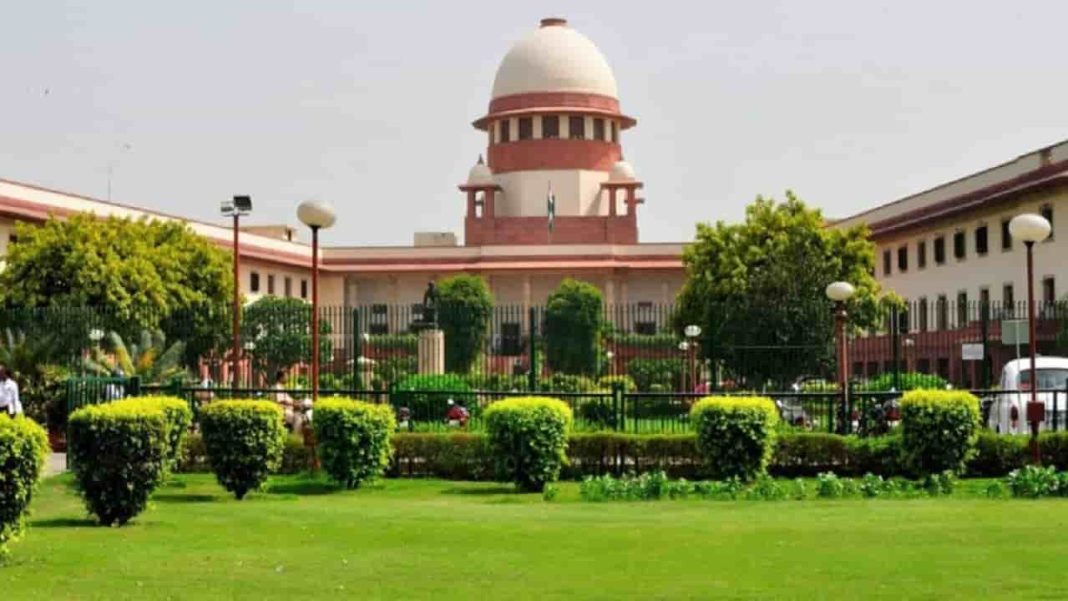The Enforcement Directorate has apprised the Supreme Court that the arrest of Delhi Chief Minister Arvind Kejriwal was based on the possession of material as required under Section 19 of the Prevention of Money Laundering Act (PMLA), which would indicate his guilt in the offence of money laundering.
In its affidavit filed before the Apex Court on April 24, the national agency submitted that treating a politician differently from an ordinary criminal in a matter of arrest would amount to an arbitrary and irrational exercise of power of arrest, which would violate the principle of equality enshrined under Article 14 of the Constitution.
It further said that differential treatment in favour of a politician who was guilty of the offence of money laundering would violate the ‘rule of law,’ thus violating the basic structure of the Constitution.
ED submitted the affidavit in response to a plea filed by Kejriwal challenging his arrest and remand by the federal agency for his alleged involvement in the now-scrapped Delhi Excise Policy 2022-21.
The affidavit claimed that the pro-active destruction of evidence in the case leads to the inference that the accused made conscious efforts to destroy evidence of offence of money laundering.
It said the destruction of evidence itself was a corroboration of the statements of these accused under Section 50 of PMLA (which in itself was a legally admissible evidence), as well as the involvement of these accused in the offence of money laundering,” the affidavit contended.
It further rebuffed Kejriwal’s argument that his arrest was due to the ensuing Lok Sabha elections.
The affidavit submitted that the arrest of a person, however high he may be, for the commission of offence based on material, could never violate the concept of free and fair elections.
It said in case the aforesaid argument was accepted, politicians who were criminals would be granted immunity from arrest on the ground that he was required to canvass in the election.
Regarding the evidentiary case of ED, the agency submitted that probe into the liquor scam was to be seen in the background of the large scale destruction of evidence.
As per the affidavit, a total of around 170 mobile phones were changed/destroyed by 36 persons (accused and other persons involved) during the period of the alleged scam and when the irregularities in the Delhi Excise Policy of 2021-22 became public. In this manner, the crucial digital evidence of the case and money trail had been actively destroyed by the accused and other persons involved in this.
Despite such active and criminal destruction of evidence, the agency was able to recover key evidence, which directly revealed the involvement of the petitioner in process and activities relating to the proceeds of crime, it added.
The national agency further claimed that the proceeds of crime in this case were not restricted to the bribe amount of Rs 100 crore, but also included the profit generated by the bribe giver to the tune of 12 percent.
As per the affidavit, Rs 100 crore was the bribe amount. The petitioner made a policy which facilitated the recovery of bribes paid. Rs 192 crore were recovered by the bribe-giver (Indospirits) in the garb of wholesale profit. The policy which fixed 12 percent wholesaler’s profit enabled the recovery of the bribe paid, thereby projecting the tainted recouped bribe amount as an untainted wholesaler’s profit.
This showed the petitioner’s direct and indirect involvement in the process or activity connected with proceeds of crime by actively assisting in making a policy which would enable the recoupment of bribe by bribe-givers in the garb of wholesale profits, noted ED.
Kejriwal had moved the Supreme Court challenging the Delhi High Court, which dismissed his petition on the grounds that there was evidence to show Kejriwal’s involvement in the alleged scam.
The High Court had further said that the money received as kickbacks was used for political campaigning in the Goa Assembly elections of 2022.


